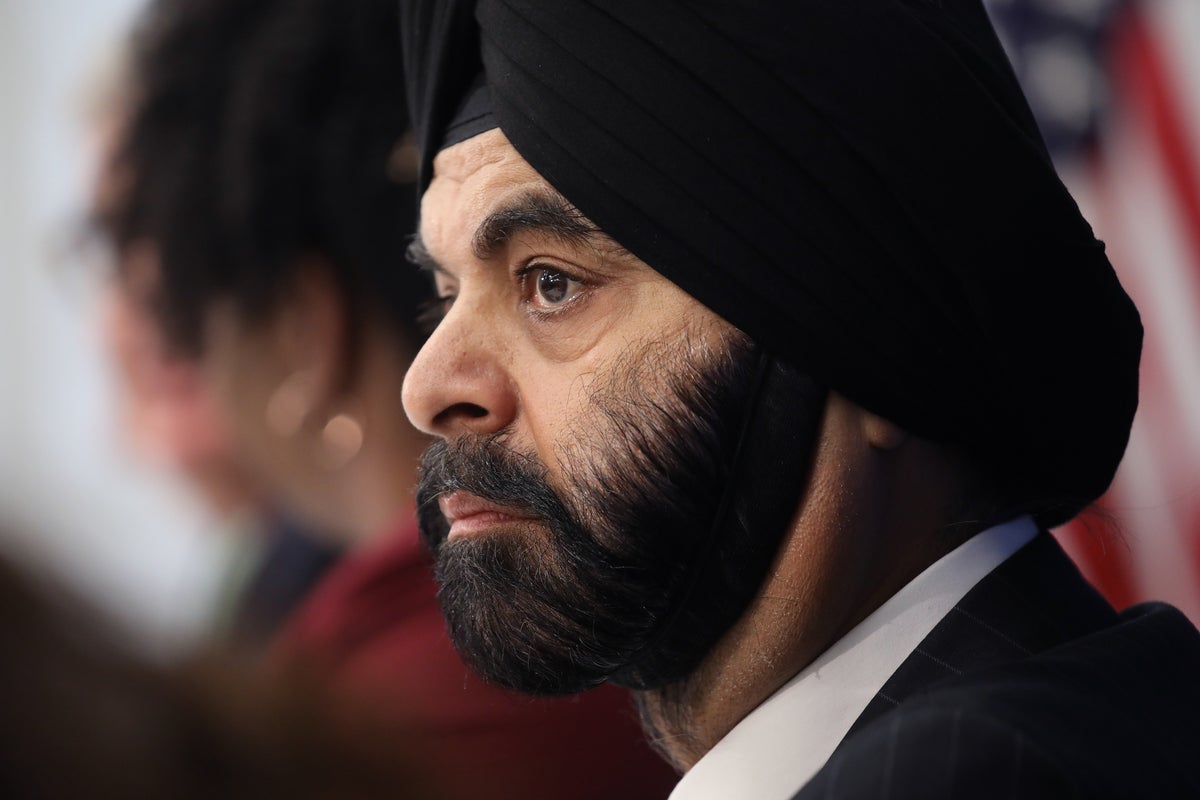
Indian-American business leader Ajay Banga has been nominated by Joe Biden to be the next president of the World Bank, as the development lender faces growing calls to prioritise climate action.
The 63-year-old former Mastercard executive “has critical experience mobilising public-private resources to tackle the most urgent challenges of our time, including climate change”, the US president said. “Ajay is uniquely equipped to lead the World Bank at this critical moment in history.”
Mr Biden hailed the business executive’s Indian roots, his knowledge of the challenges facing developing countries, and his ability to mobilise private capital to tackle big problems.
It follows the resignation of current World Bank chief David Malpass, a Trump appointee who sparked outrage last year when he refused to acknowledge that the climate crisis is real.
Mr Banga, currently an adviser to General Atlantic’s climate-focused fund BeyondNetZero, comes with extensive private sector experience, and in addition to his spell at Mastercard has worked with Kamala Harris on her central American projects.
If selected, Mr Banga will assume a crucial job at the 77-year-old institution, which oversees the provision of billions of dollars of funding to developing countries and is under increasing pressure to better address the climate emergency and bridge the inequality gap.
As the urgency to tackle the climate crisis grows, the need for financing in middle- and low-income countries is also growing. The World Bank, which plays a crucial role in unlocking climate finance for poor countries, is facing increasing calls to prioritise climate action. Countries such as India have called on the multilateral lender to boost its lending capacity for climate-related financing.
Some estimates suggest that poor countries may require trillions of dollars annually by 2030 to be able to combat climate change. Despite commitments made by richer countries, the current level of climate finance falls significantly short of these needs.
The US, the World Bank’s biggest shareholder, has traditionally been in charge of selecting the person to lead the institution, and a US citizen has historically been chosen for the job. European leaders choose the head of the International Monetary Fund (IMF). However, of late there have been calls from developing countries and international organisations alike to open up the process to incorporate more diversity. Hence there is a wider field from which to select candidates.
Oxfam International said the next president of the World Bank should be chosen through a transparent global process: “The World Bank is not a US bank, a commercial bank, or a private equity firm. For a job of this stature, we need more than a tap on the shoulder from President Biden.”
Mr Banga’s nomination has also not come without criticism. Jeff Hauser, who heads the progressive Revolving Door Project, demanded that Mr Biden retract the nomination, citing Mr Banga’s employment by a “rapacious international private equity firm” and his lack of public sector experience.
“Neither private equity, nor Mastercard, nor Citigroup, nor PepsiCo, nor Nestle, nor Dow promote shared prosperity. They all do vastly more to exacerbate inequality than to fight it,” he said in a statement.
The decision will lie with the World Bank board, which expects to select the new president by May. The board said it is accepting nominations till 29 March.
Reporters quoted a senior US administration official saying that they did not know if other countries would nominate candidates for the post, but some countries have already expressed their support for Mr Banga.
On Friday, ahead of a meeting of G20 finance leaders in the Indian city of Bangalore, Christian Lindner, the finance minister of Germany – another major shareholder – said that Berlin supports Mr Banga’s nomination.
India is also expected to support Mr Banga’s candidacy, according to Krishnamurthy Subramanian, the former top economic adviser to the Indian government who now serves as India’s executive director at the IMF. “It’s an elegant solution,” he said.
“I think the speed of the nomination, less than 48 hours after the World Bank board launched the process, reflects a desire to discourage any challengers and wrap it up quickly,” Scott Morris, a senior fellow at the Center for Global Development and a former US Treasury official, is reported to have said.







